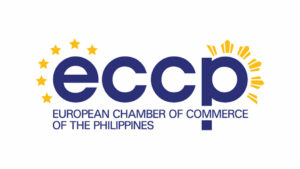MOST European firms doing business in the Philippines are expecting trade and investment to increase in the next four years, according to a report by the European Chamber of Commerce of the Philippines (ECCP).
The ECCP, in its 2024 Business Sentiment Survey Report released, collected 150 responses from ECCP member companies between November and early December.
According to the report, 85% of the respondents said that they expect the level of their trade and investment to increase in the next four years.
Meanwhile, 11% expect no change, and 3% are projecting a decline.
Around 81% of the respondents also expressed plans to expand over the next four years, while 7% said they expect to contract.
According to the ECCP, 69% of the respondents cited the Philippine economic recovery and growth opportunities as factors behind expansion plans.
“This optimism is supported by the country’s strong economic fundamentals, including positive GDP growth in recent years and in the first three quarters of 2024,” the ECCP said.
Some 63% of the respondents also cited the stable government and political system as behind any expansion plans.
Some 64% of the companies surveyed said the Philippines has increased importance in terms of revenues in the last two years.
The survey also examined the Philippines’ attractiveness as an investment destination, supplier market, and end-user market over the last two years, with 59% saying conditions have generally improved compared to elsewhere in the region.
According to the report, respondents have an overall positive expectations for the Philippines over the next four years.
“They anticipate continued economic growth driven by initiatives such as public-private partnerships, robust private consumption, rising investment spending, a growing population, and improved infrastructure, among other factors,” it said.
“Respondents also expected foreign investments to come in with the passage of several economic liberalization laws, such as the amendments to the Public Services Act, Retail Trade Liberalization Act, and the Foreign Investment Act,” it added.
However, the report cited the need for the government to “adopt a more proactive approach” in addressing corruption, accelerating digitalization, and streamlining regulations.
In particular, 75% of the respondents cited significant barriers to investment and business activity in the Philippines.
“This suggests that addressing these obstacles is crucial for further economic growth and attracting foreign direct investment,” the report concluded. — Justine Irish D. Tabile

